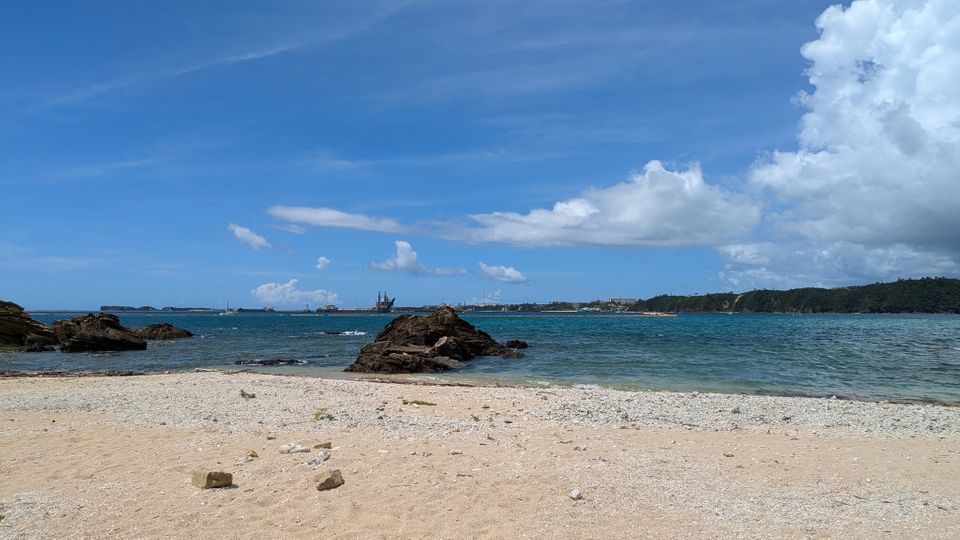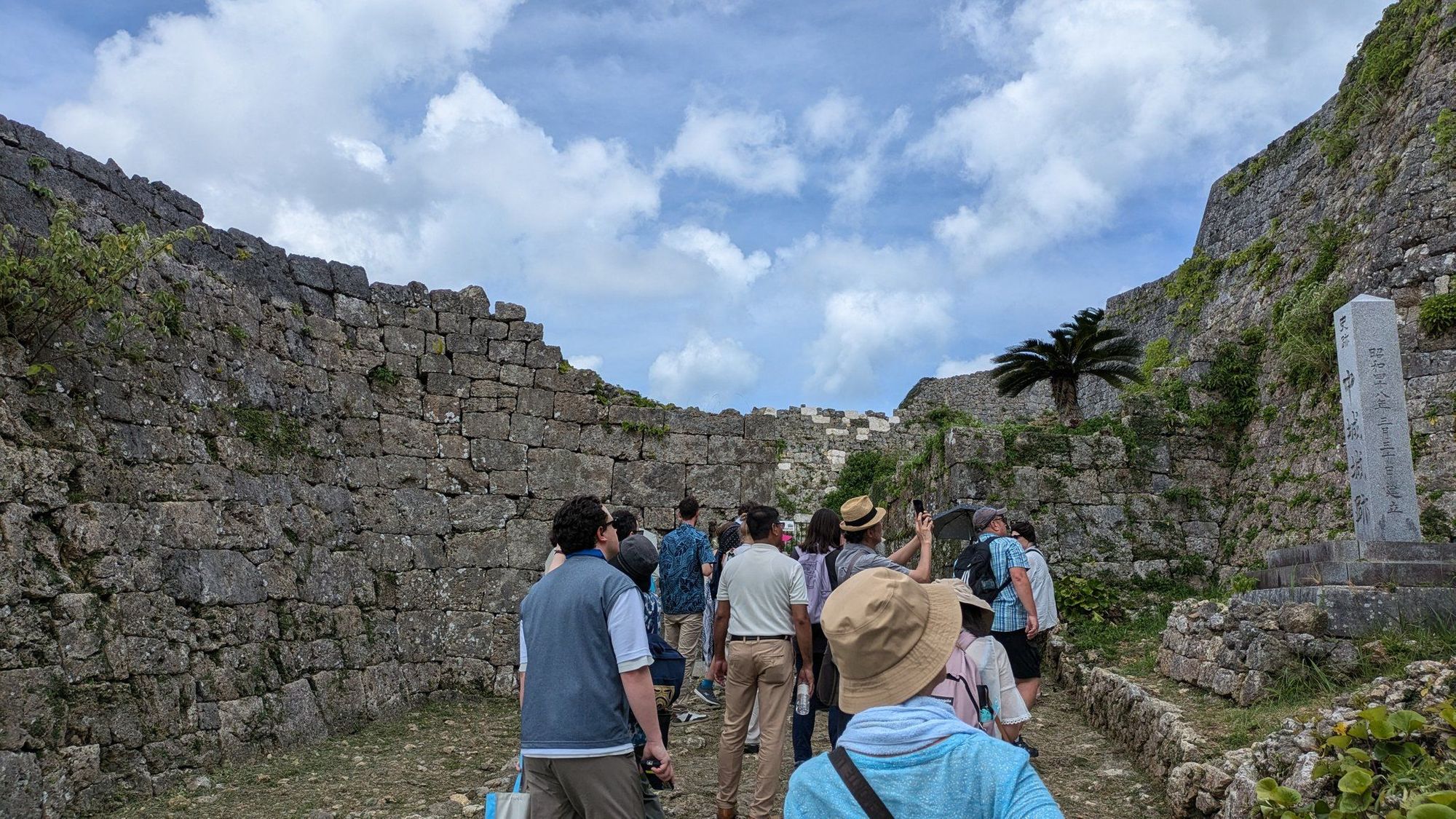CALL FOR ABSTRACTS: Final Decolonizing Futures Conference in Ryukyus/Okinawa

Final Okinawa International and Interdisciplinary Seminar on Decolonizing Futures: Research, Art/Film and Activism to Establish an Era of Hope for Future Generations

Date: 8-13 July 2025
Call for Abstracts
In order to facilitate collaboration between researchers, artists and activists, as well as between Indigenous and non-Indigenous peoples, in the process of decolonisation, the inaugural international and interdisciplinary seminar, entitled Decolonising Futures in Okinawa, commenced in Nago Okinawa in November 2023. The seminar issued a call for abstracts, with the objective of challenging colonial authorities and promoting decolonisation in solidarity with the marginalised.
Today, colonialism still smoulders in the former colonies and perpetuates across the world in the form of settler colonialism. Indigenous peoples have resisted the injustices that come with settler colonialism - ongoing oppression, continuous discrimination, and never-ending exploitation of nature - for centuries. Meanwhile, mainstream academia has been complicit with colonialism. This seminar aims to challenge those authorities, and search for ways to emancipate Indigenous, minority, and other marginalised peoples from the remnants of (settler) colonialism and to support their initiatives to revitalise and reclaim their languages, culture, art, and nature towards decolonizing futures.
The second international and interdisciplinary seminar, entitled Decolonising Futures in Okinawa, was held in Nago in July 2024. The organisers invited contributions that would meet the following proposal:
The world’s climate crisis and unequal distribution of wealth caused by the unstoppable expansion of capitalism, as well as imperialist wars such as the Russian invasion of Ukraine and the Israeli genocide of the Palestinians, leave many people feel powerless…. We call for researchers, artists and activists to submit their abstracts for presentation to us, exploring ways to transform this era of environmental catastrophe, poverty, hatred, discrimination and violence into an era of hope. We also encourage all those who, through their research, art and activism, seek to challenge colonialism, capitalism and patriarchy to work together with us towards decolonizing futures.
In fact, the event brought together 70–80 international and local researchers, students, artists, and activists, with 32 presentations, three panel discussions, and a workshop. The two-day seminar addressed a number of key issues, including the revitalization/reclamation of endangered Ryukyuan languages, Indigenous feminism and the multiple forms of discrimination faced by Indigenous women, the intersection of art and activism under and against settler colonialism, and the development of ethical guidelines for research. The third day featured four films from Greenland, Bolivia, Ainu Mosir (Hokkaido) and Miyako Island in the Ryukyu Islands. Furthermore, prior to the commencement of this three-day event, an excursion was conducted to a number of historical, political and cultural sites in Nago, Nakagusuku, and Ginowan.
The third and final international and interdisciplinary seminar, entitled Decolonising Futures in Okinawa, is scheduled to take place in Naha, Urasoe and Ginowan in July 2025, with the participation of researchers, artists and activists.
While scholarship is an invaluable tool for challenging and documenting historical and ongoing injustices, and formulating prescriptions, it is not in itself a sufficient means of achieving decolonisation. In the Fennoscandian countries, the art of the Indigenous Sámi has served as a symbol of resistance to colonial encroachment in Sápmi, strengthening the bonds of Sámi society as a whole, promoting solidarity with Indigenous peoples around the world and passing on alternatives to future generations. In order to enhance interdisciplinary collaboration between the participants in pursuit of decolonising futures, we have extended invitations to two esteemed artists and an innovative theatre company. These include Thomas Colbengtson from Sápmi in Sweden, and Antony Frank Grahamsdaughter, a Swedish resident with Canadian Indigenous roots. We have also invited Amareya Theatre & Guests from Gdansk, Poland, which includes Norway-based Inuit artist of Greenlandic descent Najavaraq (Louise Fontain).
By employing photographs of their own ancestors and family videos, Thomas and Antonie's visual arts facilitate the viewer's immersion in the depths of their memories of indigenous histories that are not reflected in textbook narratives that are centred on the state, thereby instilling a sense of the necessity for decolonisation. Amaleya Theatre & Guests' performing arts focus on the stories of ethnic, sexual, linguistic, physical and religious minorities. For example, the trauma and stigma experienced by marginalised indigenous people under settler colonialism resonate with the audience's bodies through the stage and reverberate long at the ends of the body. Furthermore, we will be extending invitations to local artists and researchers, both of whom are engaged in the struggle against dual settler colonialism in Ryukyu/Okinawa or committed to research on relevant challenges in other fields, to participate.
It is our firm belief that this six-day event, which encompasses both artistic and academic elements, will serve as a platform for all participants from the Ryukyu Islands and beyond to engage in mutual learning and collaboration, transcending all boundaries, with a view to establishing an Era of Hope for future generations in solidarity with marginalised peoples and communities across the globe.
Please make sure that: The number of words in the abstracts is limited to 100-150; Authors must include the title, affiliation, email-address, and 4-5 keywords in the abstracts; The completed abstract should be submitted to Olivia Doyle (olivia.s.doyle@gmail.com) before 31st May, 2025.
Tentative Programme
8-9 July 2025
Interdisciplinary Seminar with Visual Arts
Venue: Urasoe Art Museum
An Exhibition of Indigenous Strength by Antonie Frank, Tomas Colbengtson and local artists.
Venue: Okinawa International University
- Three panel discussions are scheduled to take place, with potential topics of presentation under consideration as follows:
- Panel discussion: Women and Girls under Violence and Discrimination, Repatriation of Stolen Skeletons - Legacy of Scientific Racism, Environmental and Health Issues Facing Indigenous Communities
- Possible presentation topics: Collective Rights of Minorities and Indigenous Peoples, Indigenising Museum Spaces, Minority/Immigrant literature, Historical Revisionism and Hate Speeches, etc.
- Breakout Sessions
- Co-Creation Workshops
10 July
Excursion
11 July 2025
Performing Arts for an Era of Hope
Venue: Mekaru Base
Amareya Theatre & Guests from Gdansk, Poland and Local artists
12-13 July 2025
Presentations and Panel Discussions on Indigenous languages with Films
Venue: Okinawa International University
- Session 1: Language Loss, Language Reclamation and Community Building
- Filmed Performance “Nomadic Woman” by Amareya Theatre & Guests
- Session 2: Education, Language Policy and International Human Rights Framework
- A Film “Samiblod” by Amanda Kernell
September - October? 2025
Exhibition for Indigenous Strength by Antonie Frank, Tomas Colbengtson and local artists
Venue: Sakima Art Museum
Organising Committee: CEMiPoS & Allies
Organising members
Madoka Hammine, Assistant Professor, University of Denver, Colorado
Masahide Ishihara, Professor, University of the Ryukyus
Kaoru Okano, Associate Professor, Okinawa International University
Ryo Hagino, Lecturer, Okinawa International University
Shinako Oyakawa, co-chair ACSILs
Aika Higashimori, Director, NPO “Cinema at Sea”
Kanae Uema, Curator, Sakima Art Museum
Andrea Boccardi, Assistant Professor, Masaryk University
I-Yun Cheng, PhD Candidate, University of Sydney
Olivia Doyle, Researcher, CEMiPoS
Aaron Hopes, PhD Candidate, Stanford University
Sachiyo Fujita-Round, Specially appointed Associate Professor, Daito Bunka University
Hiroshi Maruyama, Director, CEMiPoS